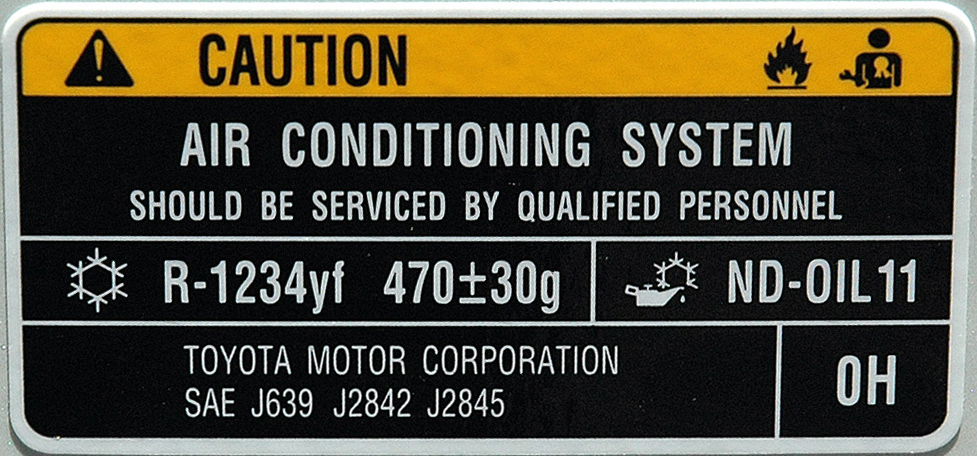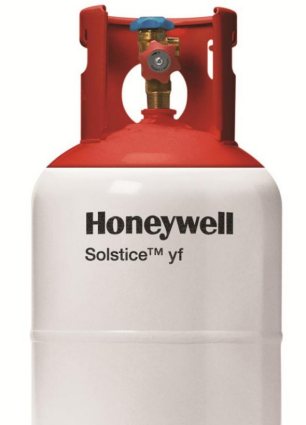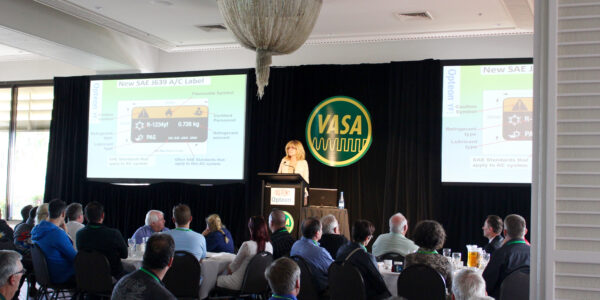500,000 cars using R1234yf in Germany
- PostedPublished 18 September 2015
There may be media-fuelled public resistance to R1234yf history in Germany – not to mention the refusal by Mercedes-Benz to adopt it and Volkswagen Group’s commitment to CO2 as a refrigerant – but government figures reveal that there are already half a million cars on German roads with the new gas coursing through their air conditioning systems.

Of the purely domestic brands, only BMW is represented in the comprehensive breakdown of makes, models and areas of Germany in which the vehicles are registered.
General Motors-owned German brand Opel also has a couple of models in the list but Volkswagen and its group brands such as Audi, Porsche, Seat and Skoda are conspicuously absent.
Models from most French, Italian, Japanese, South Korean, British and American brands are well represented in the data.
If nothing else, the German list provides a glimpse into the future of how many cars and from which brands Australasian workshops can expect to see running R1234yf in the near future.
The German Federal Government released the data in response to a request from a group of MPs and the left-wing Die Linke party, which has strongly opposed the introduction of R1234yf for some time.
In the request (translated by SightGlass News from German), R1234yf was wrongly described as “highly flammable”.
But the request also points out that a final risk assessment of R1234yf under the European Registration, Evaluation, Authorisation and Restriction of Chemicals (REACH) was “missing for years”.
According to the European Commission website, the Member State Committee of European Chemicals Agency ECHA has been unable to reach a unanimous verdict on R1234yf regarding two generation reproductive toxicity, due to disagreement about “which study should be requested and what are the parameters for the request”.
Decisions were suspended until updates to test method regulations that became effective in February this year, but at the time of publication no verdict had been reached.
In light of this, the request also asks the Federal Government to list current knowledge “on the risk assessment of the refrigerant R1234yf and its fumes and reaction products”, including the harmful substances hydrofluoric acid and carbonyl difluoride that can be released if R1234yf is burnt.
It also asks what tests have been done to simulate real accidents or vehicle fires.
Questions about trifluoroacetic acid (a substance toxic to some plant and algae species that is formed when R1234yf decomposes in the atmosphere) were also raised.
The response lists the 12 different tests performed on R1234yf – many of which have been well publicised – in addition to statements about how results can apply to real accidents and confirmation that hydrogen fluoride was detected in some test scenarios.
However it admits that “other substances were not measured … the issue of carbonyl fluoride formation and its share is not fully understood”.
On the impact of trifluoroacetic acid formation caused by R1234yf, the response cites assessments by the Scientific Assessment Panel of the Montreal Protocol (SAP) that this will be “negligible” in the coming decades.
“Long-term effects require on its assessment of this body of further investigations. The federal government also sees the need for further investigations, in particular at international level and therefore supports further activities of the SAP,” says the response.
- CategoriesIn SightGlass
- TagsA2L refrigerant, Flammable refrigerants, R1234yf, refrigerant, SightGlass News Issue 3






